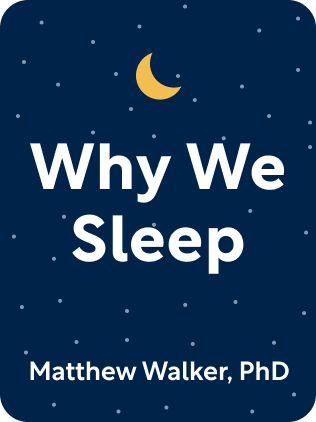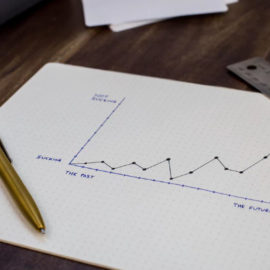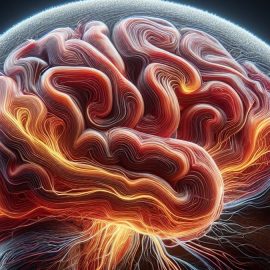

This article is an excerpt from the Shortform summary of "Why We Sleep" by Matthew Walker. Shortform has the world's best summaries of books you should be reading.
Like this article? Sign up for a free trial here .
Is Matthew Walker’s Why We Sleep worth reading? What were the biggest complaints after the book’s publication?
Why We Sleep explores every aspect of sleep, including the physical and mental benefits, how sleep works, factors that affect sleep, sleep and development, and more. However, the book was highly criticized after its release due to its research methods and interpretations.
Below is a review of Why We Sleep by Matthew Walker.
Why We Sleep: The New Science of Sleep and Dreams
You’re probably getting less sleep than you should be. Many people are more chronically sleep-deprived than they realize, and the punishments for this are severe—reduced productivity and happiness, and increased risk of a panel of diseases. Why We Sleep: Unlocking the Power of Sleep and Dreams discusses the mechanisms of sleep, its importance and major benefits, and the best ways to get better sleep.
About the Author
Matthew Walker, Ph.D.—self-branded “Sleep Diplomat”—is the director of the Center for Human Sleep Science, which investigates the role of sleep in human health. He’s also a professor of neuroscience and psychology at the University of California, Berkeley and was previously a professor of psychiatry at Harvard Medical School.
He has published over 100 scientific studies, mostly on sleep science, and has appeared on numerous television programs, including 60 Minutes, BBC News, and CBS This Morning.
Beyond TV programs and podcasts, Walker spreads the gospel of sleep through events, forums, and workshops—his 2019 TED Talk was one of the fastest to reach a million views, according to his website. His other pursuits within the field of sleep include serving as scientific counsel to companies like Fitbit, Google, and sleep therapy company Shuni.
In 2020, he won the Carl Sagan Prize for Science Popularization, which is given to researchers who’ve made science more accessible to the general public.
Walker’s official website states that he earned his Ph.D. in neurophysiology from the Medical Research Council (MRC) in London. However, in a blog post critiquing Walker’s book, researcher Alexey Guzey points out that the MRC does not grant Ph.D. degrees. Walker’s Wikipedia page states that he received his Ph.D. from Newcastle University, and that his research was funded by the MRC. It is unclear why there is a discrepancy in information.
Connect with Dr. Matthew Walker:
The Book’s Publication
Why We Sleep: Unlocking the Power of Sleep and Dreams, published in 2017 by Simon & Schuster, is Walker’s first book. It became a New York Times Best Seller and landed at the top of the Sunday Times Bestseller list in the U.K.
Historical Context
Walker sees insufficient sleep as a global problem, originally writing that the World Health Organization (WHO) even considers it a health epidemic. He has since corrected this information, saying that it should have been attributed to the Centers for Disease Control (CDC). (It’s worth noting that the CDC currently doesn’t seem to consider insufficient sleep an epidemic. Blogger Guzey speculates that the source of the error might be CDC’s modified stance on sleep loss, from “public health epidemic” to “public health problem,” though this happened two years prior to the book’s publication.) Walker writes that society doesn’t seem to give sleep much importance in part because science hasn’t sufficiently explained why we need it.
Historically, there wasn’t much scientific experimentation in the field of sleep prior to the 20th century, and the “study” of the field was largely centered around dream interpretation. Sleep science began to progress in 1952, when researchers first observed the rapid-eye movement phase of sleep. Walker writes that in the last two decades, there has been an “explosion of discoveries,” a “research renaissance” that reveals how sleep works and just how important it is.
Intellectual Context
While the book is classified under the genre of popular science—an interpretation of science geared toward a general audience—Walker and other researchers have cited it in academic papers. (You can find a list of citations on Google Scholar.)
Critical Reception
Positive Why We Sleep reviews say the book is a fascinating, engaging read and that Walker is adept at explaining complex scientific concepts to a general audience. However, even those who give the book positive reviews (including Microsoft founder Bill Gates) note that Walker doesn’t always back up his claims with solid evidence.
The most comprehensive criticism comes from researcher Alexey Guzey, whose blog post claims that Why We Sleep is full of errors and contradictions, exaggerates the problem of lack of sleep, and misrepresents research. His blog post goes through Chapter 1, questioning or disputing the information from Walker’s book point by point. Guzey explains that he spent 130 hours fact-checking this one chapter to give readers an idea of the density of errors in the book. He cautions readers against taking everything in the book as fact. Since the publication of his blog post, readers have sent Guzey other errors that they found.
In a podcast interview where he discusses sleep, Walker responds to critics and says that a critical part of good scholarly conduct is correcting errors, and he addresses some of the errors that he found and that other people have pointed out. In a 2019 blog post, Walker addresses some of the questions that have been raised about his book and mentions that he released a second edition to correct errors in the 2017 edition. While there is no record of a second edition online, the version this guide is based on does contain Walker’s corrections.
Some readers have noted how reading Why We Sleep has made them even more anxious about lack of sleep. Walker addresses this in his blog and has included a caveat in the revised version of the introduction that notes that the book isn’t meant to treat sleep disorders and advises reader discretion.
Commentary on the Book’s Approach
Why We Sleep includes a huge amount of scientific information, but Walker makes it more engaging by presenting it in layman’s terms and using easy-to-grasp analogies. The result is an educational read that is friendlier and more appealing than an academic paper. However, Walker himself notes that should you nod off while reading the book, he wouldn’t take offense and would in fact be delighted.

———End of Preview———
Like what you just read? Read the rest of the world's best summary of Matthew Walker's "Why We Sleep" at Shortform .
Here's what you'll find in our full Why We Sleep summary :
- Why you need way more sleep than you're currently getting
- How your brain rejuvenates itself during sleep, and why nothing can substitute for sleep
- The 11-item checklist to get more restful sleep today






